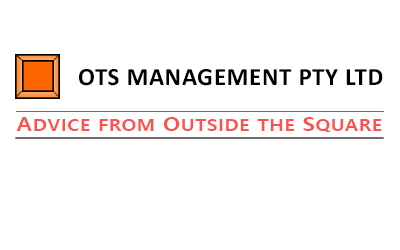I recently had a very interesting conversation with my friend, an independent Board member of an Indigenous corporation that I consult to.
I think he is a very valuable Board member, contributing sound advice from his experience of business in general, his knowledge of good governance practice, and from his personal knowledge of the pastoral industry sector that the corporation was in.
Yet, in our conversation we spoke about how the corporation was not progressing, for a variety of reasons including the inability to resource enough talent as full time employees.
He made the statement: "It's something I struggle with, how an independent Board member can actually add value to an organisation and not just 'advise' at a strategic Board level; and even more generally how a Board itself can add real value to the organisation."
This is a difficult and interesting question. I certainly don't have a quick answer to it.
I can outline the many values that an independent Director can bring to your Indigenous Board.
As already mentioned, they can provide a depth of business experience that can give nuggets of gold about how to transact a business transaction safely, what the "usual" steps should be, and what to look out for. To a Board inexperienced in commercial decision-making, this can be valuable.
An independent Director's business experience can also trigger red flags about different situations, financial or otherwise; or it can introduce tools to your decision-making such as financial benchmarks that you should seek, or deliverables that you should aim for.
His or her experience generally can also bring useful networks to the organisation: a good lawyer or accountant, specialists, reference points, other business people.
All this is particularly true if they are experienced in the sector in which you operate.
If they are experienced as a Director they can also bring advice gained from experience about good governance principles - often the smaller things that trip people new to corporate legislation, or simply a better way to do things and improve by installment.
A good - independent - Director can also provide his or her opinion without fear or favour. Which means their advice is direct and honest.
All of these things add value to the way the Board works. But do they actually add any value to the organisation itself? And indeed more generally how does even an improved, well-performing Board actually add value to the Not-For-Profit organisation?
As my friend said to me, often Boards of NFP's (and by extension, Indigenous organisations) do not add a great deal of value to the operations and growth of the organisation. Management is at the coal-face and quite rightly manages the operational aspects of the business, pulling the Board along so that whether the operational aspects add to growth, the Board simply becomes a passive governance check and statutory compliance tool.
This passivity happens whether the management is innovative and active and taking the organisation to great places, or it is reactive and business-as-usual taking the organisation nowhere. It even takes place when the management is poor, or poorly resourced, or overworked, or ineffective, and potentially damaging to the organisation.
The most value a Board seems to provide, is the choice and hiring of a really good CEO and supporting them with the resources to build a really good team; or alternately to remove a poor performer.
Is that all?
A good Board can add value to the organisation in terms of helping it to grow and be successful, not just as a statutory body to watch over the management. We all innately think this, yet what can it do?
I asked an employment consultant about this and he cited that the skills that seem to be most in demand of potential Directors (of commercial companies) these days are:-
- marketing;
- business development;
- technology;
- workforce planning; and
- digital marketing/social media.
Bearing in mind that a professionally run NFP and Indigenous organisation should reflect sound business principles, it is not a far stretch to say that these skills could also be demand on their Boards. Marketing and business development to attract the right sponsors, philanthropic agencies, grant providers, as well as find and innovate new business arms and projects that meet community needs. Technology, including social media for communications is critical these days for any organisation. Workforce planning, including the ability to navigate through the maze of workforce legislation is also needed in NFP organisations.
Yet, isn't a listing of skills no more than my explanation above of what business experience can bring?
Yes, they can advise the management of what technology should be explored, or introduce useful people who can fund the organisation, or introduce new projects to meet needs, but in the end, they have to leave it to management to develop these leads. Indeed it is poor governance to "jump the fence" and start taking over operationally.
Perhaps the answer is not in the skills they bring to the Board, but the level of engagement they have with their management and executive teams.
Spending more time (and their experience) on Board matters in Board meetings may not be the most effective use of their value. However if they spent some of this time between Board meetings engaging with the CEO and other executives, they can add value to operations by raising attention beyond here and now.
Strategy and strategy-implementation needs to become more of a collaborative process, rather than where the Board sets it and then hands over to management to implement it. Doing it as it has always been done before can do more harm than good - it can overload a good executive team for the best reasons. The engagement between Board and executives then becomes a sharing of ideas and solutions to roadblocks, where implementation and even perhaps some strategy can be discarded or amended.
The Board is then proactive rather than a reactive statutory body.
Of course, a proactive Board challenging the status quo must not jump the fence and have a direct say or hand in running the business. While encouraging engagement the Board has to stay out of the hot kitchen.
Part of their engagement can be a more proactive role in identifying and cultivating talent, thereby improving succession planning as well as executive team quality. Often the C-Suite team can be blind to talent (and the mentoring they need) that is right beside them, and a Board can add value to operations by ensuring their eyes are opened and future management is cultivated.
As I said at the beginning, I don't have a quick answer to how independent Director and Boards in general can add value to an organisation (other than the obvious risk-management value of wielding good governance principles).
What I've raised above are discussion points really, and I'd like to hear your opinion on the question.
Perhaps I'll end this discussion with a summary of some ways I think a Board can add value to an organisation, specifically an NFP.
- Engage with the executive team between Board meetings - stay current, understand the opportunities as well as the difficulties that arise at operational level, especially as they pertain to strategy. The more you engage with management, the more you get to understand their issues, the more you can provide advice from your experience.
- Ask tough questions that management may not be asking themselves - it's human nature that status quo is less pain. Even if they challenge the status quo, are their developments enough of a challenging leap or are they settling for what they think they can/want to achieve?
- Find and cultivate talent - introduce talented people to the organisation; become aware of the talent and skills available in the organisation and how management is mentoring them. Provide assistance through secondments and external training programs.
- Help form strategy in a collaborative manner - don't just review, criticize and tick off strategy prepared by management. Continue engagement during implementation and, without crossing the line, provide suggestions and solutions to implementation problems.
So it's over to you. What do you think?
Please get over to the website www.otsmanagement.com.au and comment on this blog post. I'd really be interested in starting this discussion and perhaps, in time, using your responses to help Boards provide value to Indigenous organisations.
If you see this post on one of our social media feeds, please like and comment so that I can monitor your ideas. Better yet, send me a note by going to our "Contact Us" page at https://otsmanagement.com.au/contact-us/


